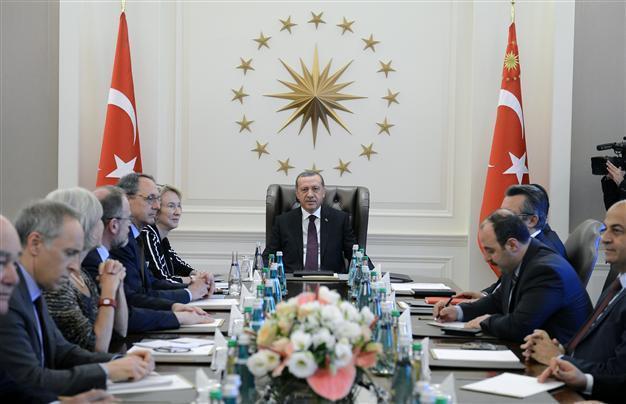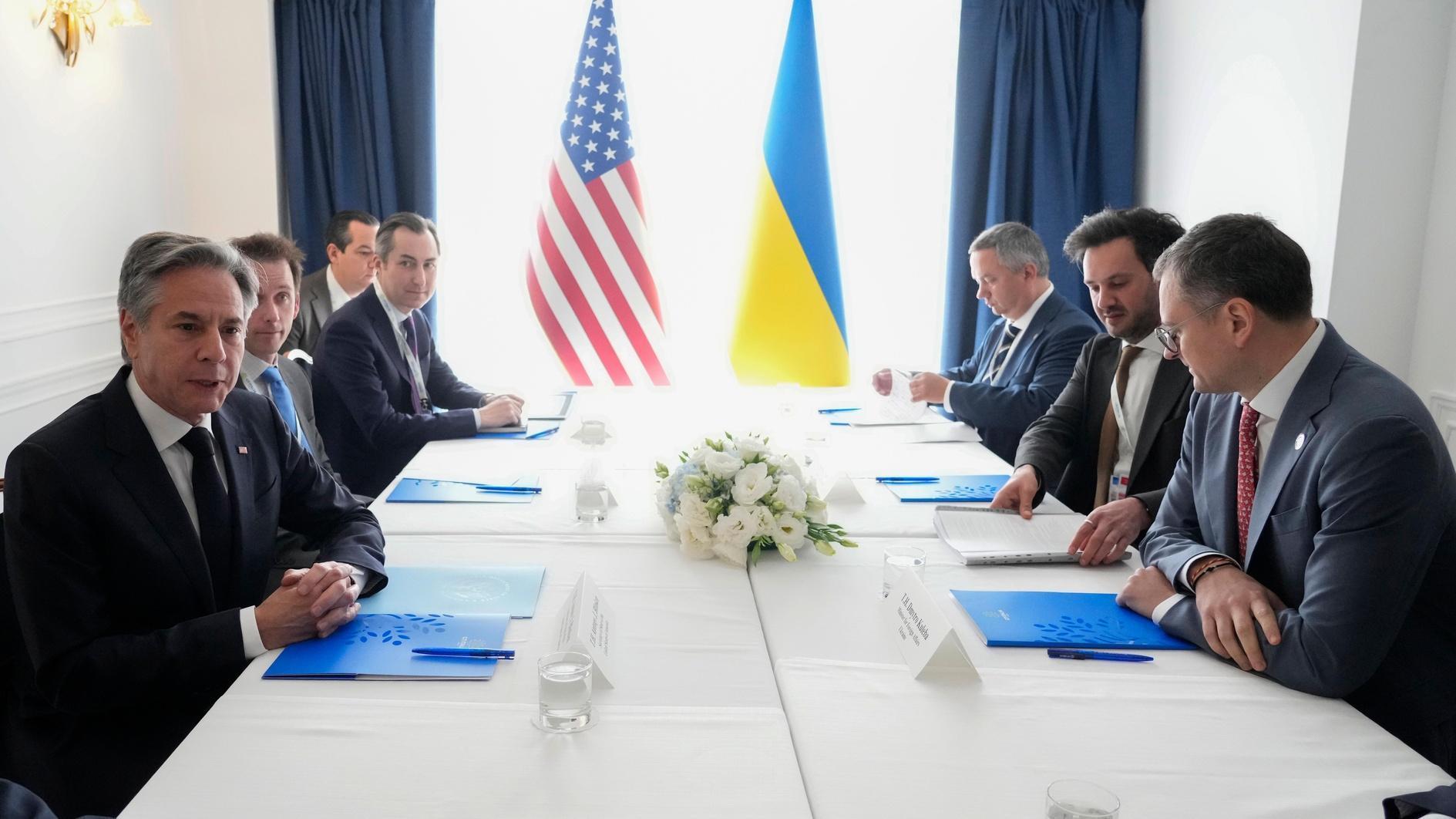Turkish President Erdoğan increasingly against Internet every day: CPJ
ANKARA

AA Photo
Senior Turkish government officials have “aggressively defended” their country’s press freedom record during meetings with a delegation of journalists, even as President Recep Tayyip Erdoğan admitted that he was “increasingly against the Internet every day,” according to Committee to Protect Journalists (CPJ). A presidential advisor, on the other hand, defended that Erdoğan's remarks "should be understood in their context."Erdoğan, Prime Minister Ahmet Davutoğlu, Justice Minister Bekir Bozdağ and main opposition Republican People’s Party (CHP) chair Kemal Kılıçdaroğlu hosted the joint delegation of the New York-based CPJ and the Vienna-based International Press Institute (IPI) in separate meetings on Oct. 2.
Criticism targeting international, local media
“Turkey’s leaders aggressively defended their record on press freedom issues, denying that they had applied undue pressure. They blamed media outlets for polarizing and distorting coverage of recent events such as the Gezi Park rallies, a government corruption scandal, and a recently resolved hostage situation in Iraq,” the CPJ said in a statement Oct. 3, noting that officials criticized a variety of news outlets, from local newspapers to The New York Times and CNN International.
"Turkey risks a serious backslide in democracy unless a recent trend of erosion of media freedom is reversed," the IPI warned in a separate statement about the mission.
Erdoğan emphasizes insults, terrorism
“Media should never have been given the liberty to insult,” said Erdoğan during a 90-minute meeting at the Çankaya presidential palace in Ankara. Citing his concern that criminal and terrorist organizations, including the Islamic State of Iraq and the Levant (ISIL), are using the Internet to recruit followers, he defended his government’s efforts to control online speech. “I am increasingly against the Internet every day,” he told the delegation, according to the CPJ's statement.
Lütfullah Göktaş, the chief presidential advisor on media, later said that Erdoğan's remarks "have been distorted by some media outlets."
"Mr. President's remarks about the Internet should be understood correctly. The context of the speech is key to do that," Göktaş said. After confirming that Erdoğan touched upon the issue of the Internet, Göktaş added: "However, Mr. President didn't talk about being against the Internet. By mentioning the example of [beheading videos], he stressed that social media could be used by the ISIL or similar terrorist organizations as a propaganda tool ... It is clear that such a remark cannot be regarded as something against the Internet."
PM Davutoğlu calls on threatened journalists
In its meeting with Davutoğlu, the delegation noted that harsh statements from senior officials criticizing coverage have triggered vilification in the pro-government media, and sparked threats and attacks on social media, most recently against New York Times reporter Ceylan Yeginsu and Economist correspondent Amberin Zaman.
“If any journalists are under threat they can turn to my office and we will provide protection,” Davutoğlu said. “Any threat to Amberin Zaman is a threat to me.”
Justice minister proposes global watchdog for Internet
Bozdağ, meanwhile, suggested that the world should exert “a joint effort about the Internet.”
“There should be an international treaty against the harms of the Internet. It could be useful for the whole world if certain rules have been set internationally. This effort can be made through the United Nations or a similar organization,” he said.
The delegation expressed concern about freedom of expression online. On Oct. 3, one day after members of the IPI-CPJ delegation met with the president of the Constitutional Court of Turkey, Haşim Kılıç, the court overturned new amendments to an Internet law, which would have allowed the country’s telecommunication authority to block websites swiftly and without a court order, and to collect and retain Internet users’ data.
'Democracy slipping under feet'
“As government figures threaten newspaper owners, ask them to fire critical journalists, putting their own representatives in media groups and penalize independent ones financially, democracy is slipping away,” Kılıçdaroğlu told the delegation.
“Although we disagree with government leaders on the role of news media, we are encouraged by their willingness to meet with us,” said CPJ board Chairman Sandra Mims Rowe, who led the joint delegation. “We welcome the commitments they made, and we believe officials recognize the depth of international concern.”
“Our visit has led us to the conclusion, however unfortunate, that not only is Turkey still a leading jailer of journalists in Europe, but also that other grave threats to media freedom have emerged since IPI conducted its last press freedom mission to Turkey in 2012,” Russian journalist and IPI Executive Board Chair Galina Sidorova said.
Sidorova, one of seven IPI Executive Board members that took part in the mission, added: “Government pressure – both direct and indirect – on journalists and media owners, a weakened system of checks and balances and a polarised political climate in which toxic, anti-media rhetoric is allowed to flourish have added to long-standing problems with media freedom in a country that touts its standing as part of the democratic world.”
















